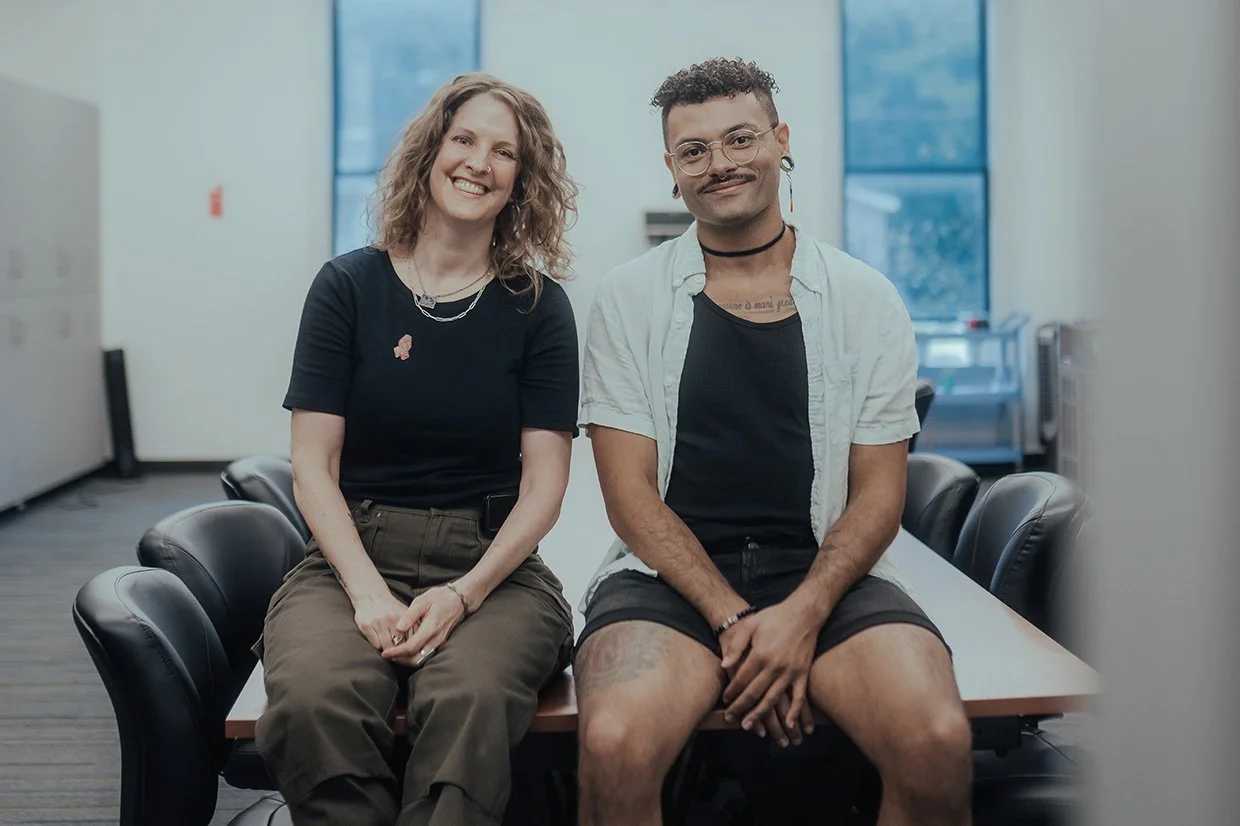Building Affirming Spaces: How the MAGICAL Project Empowers Racialized 2SLGBTQIA+ Communities
Meredith Fraser and Donavon Trice
By Donavon Trice, Regional HIV AIDS Connection
Regional HIV AIDS Connection is an AIDS service organization, and we aim to positively impact the lives of people living with and/or impacted by HIV and Hepatitis C. We do this in a variety of different ways. For example, we offer case management supports and services, residential services in the context of transitional/respite/palliative care, harm reduction services, and health education and community coordination and empowerment through collaborative initiatives - such as the newly funded MAGICAL project.
The MAGICAL project acknowledges gaps that exist for members of 2SLGBTQIA+ communities who are part of marginalized and racialized backgrounds, as there is a noted lack of services and affirming spaces for people in the community who are not predominantly cis or white. This makes community-building difficult on an individual level. We're hoping the MAGICAL project is able to fill some of these gaps and build a community that is able to acknowledge and support people who are not receiving the kind of care, connection and affirmation that they should.
By affirming spaces, we mean spaces that people will be able to enter into and see other people who are part of the community and who look like them being represented, uplifted, and highlighted.
Affirming spaces are incredibly important for racialized Queer community members. Entering into a space where you’re the only person who looks like you can be a daunting task. You never know what you’ll be encountering. You never know how people are going to be interacting with you. This presents an immediate barrier to people who don't necessarily fit the demographic majority. We know from research that social connectedness is an incredibly important aspect of overall health and wellbeing, so our hope is to really create spaces for people to find community, to find the support that they need, to be celebrated and to feel welcome.
Without access to community connections and affirming spaces, people are placed at risk in a variety of different ways that are often not necessarily recognized by people who aren't living the same experience. It can be incredibly detrimental and incredibly harmful to a person's mental or even physical health to be isolated or to be in unsupportive spaces. When you are a 2SLGBTQIA+ person, when you are a racialized person, you already tend to feel alone. When you then enter a space that is not specifically crafted for you, or for the community that you are a part of, it can really amplify these feelings.
By contrast, when you have people around you who understand what it is that you are experiencing on a day-to-day basis as a result of the realities thrust upon racialized and 2SLGBTQIA+ communities, it creates a space of built-in understanding. If I have an experience with somebody where there is a racial transgression that is enacted against me, if I go to one of my friends who is part of the Black community or is part of any racialized community who is also experiencing these things on a day-to-day basis, there's not a burden of trying to prove that racism exists. There's not the burden or re-traumatization that can come from having to convince somebody that you are actually experiencing this. By having a support system that comprises a community of people who are sharing that lived experience, who are enduring the same ongoing realities, at minimum there's somebody who understands. And that is huge. Having people who can really commiserate with an experience of racialization and marginalization – like having to navigate microagressions on a daily basis- who are able to identify with this, and who are able to listen to you without judgement and without assuming that you are imagining the reality of racism that you have encountered or are experiencing, can truly be world changing, and it can save lives.

